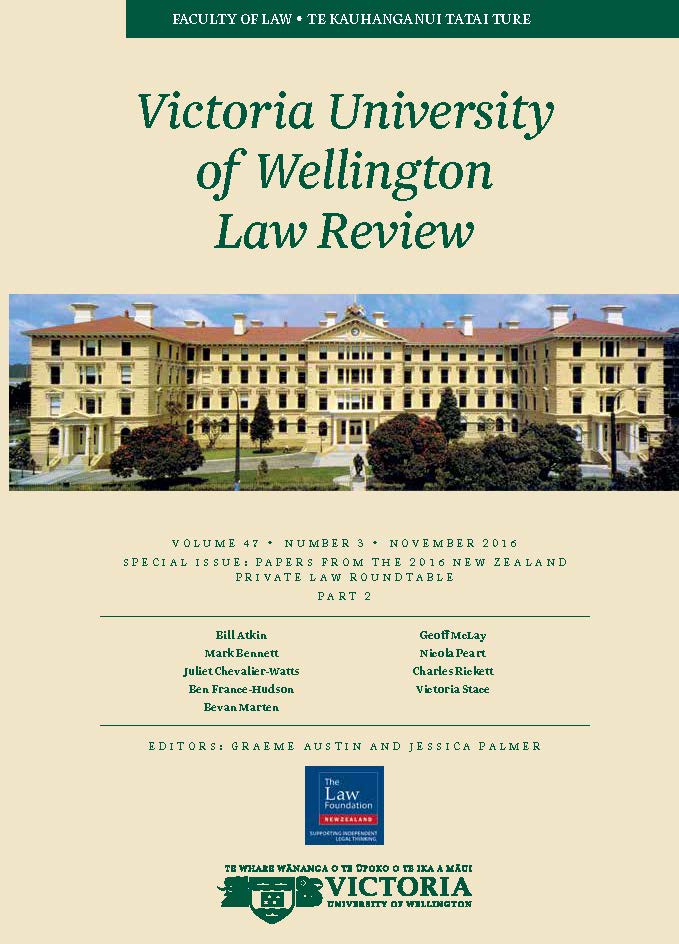Statutory Property: Is it a Thing?
DOI:
https://doi.org/10.26686/vuwlr.v47i3.4794Abstract
Over the last several decades there has been a proliferation of property-type rights created by statute, particularly in the environmental management context. A key question has been how to approach these rights on a principled basis, particularly where Parliament has been silent about their precise nature. One response has been to put a gloss on these rights by classifying them as a new category of "statutory property". However, this article suggests that we should recognise that these types of rights are private property. This argument is based on the premise that private property serves a variety of social goals and not only individualistic ones. As a result, the institution of property is flexible enough to cater for the main concern driving this legislative vagueness, which flows from the risk that recognising rights as private property may serve to undermine the purpose for which property is being employed. This article develops this point with reference to legislation setting up individual transferable quota for fish and emissions units for greenhouse gases in New Zealand. It argues that the rights used by these schemes, although not explicitly articulated as private property, should be treated as such. It suggests that, providing the contours of the right have been structured carefully and the boundaries of the right clearly demarcated, it is desirable that the law of property fill in any resulting gaps not addressed by the legislation.
Downloads
Downloads
Published
How to Cite
Issue
Section
License
Authors retain copyright in their work published in the Victoria University of Wellington Law Review.


